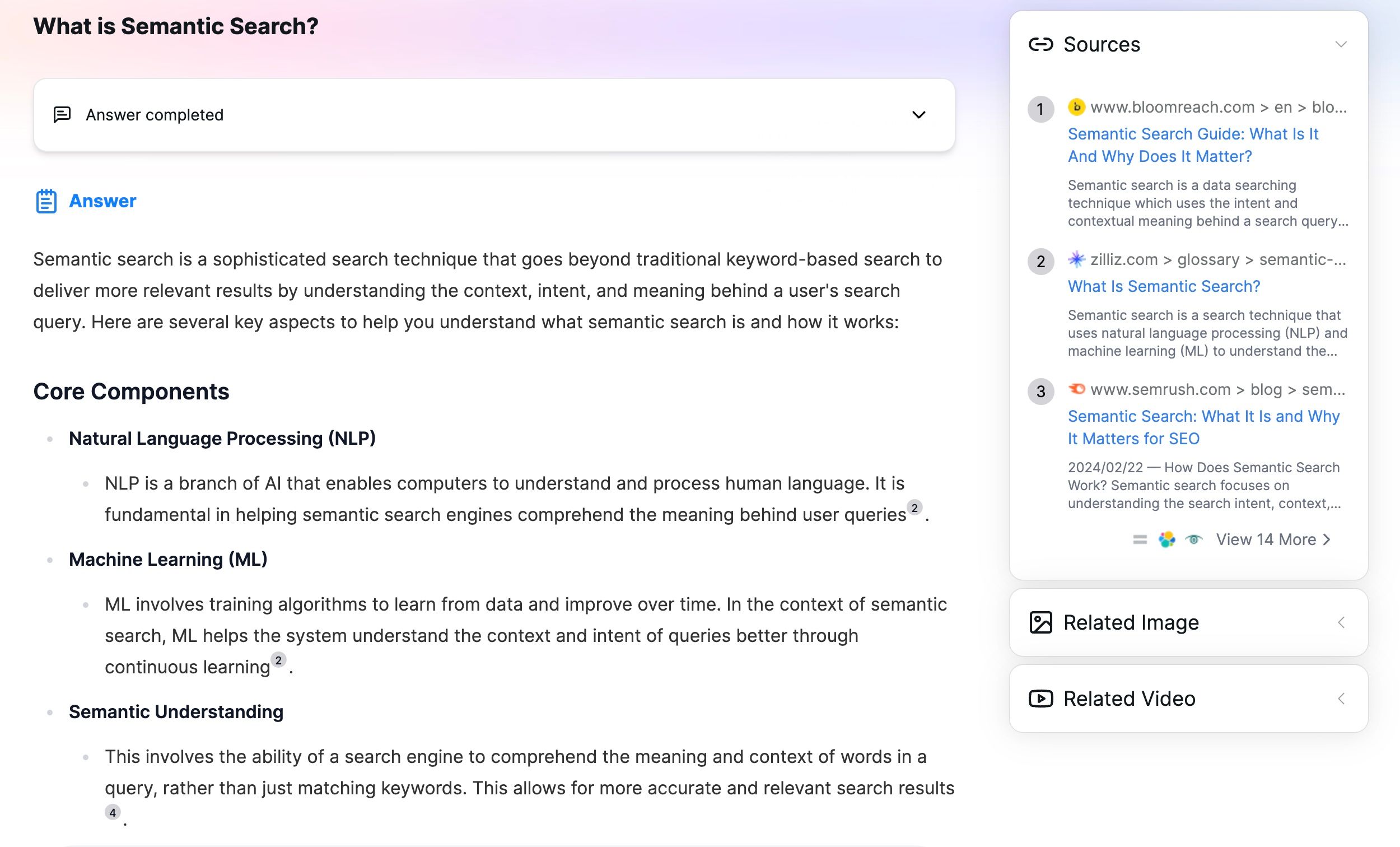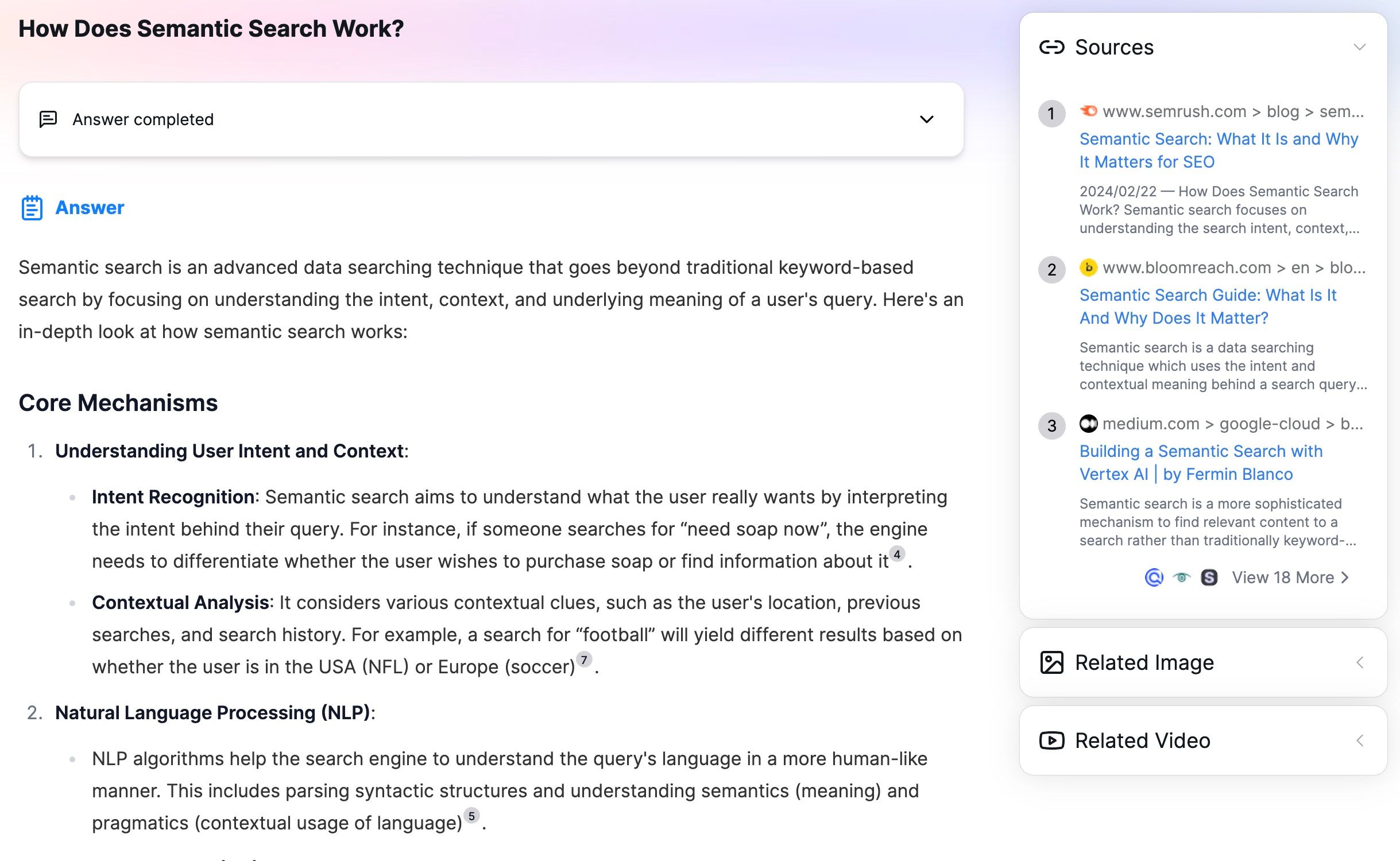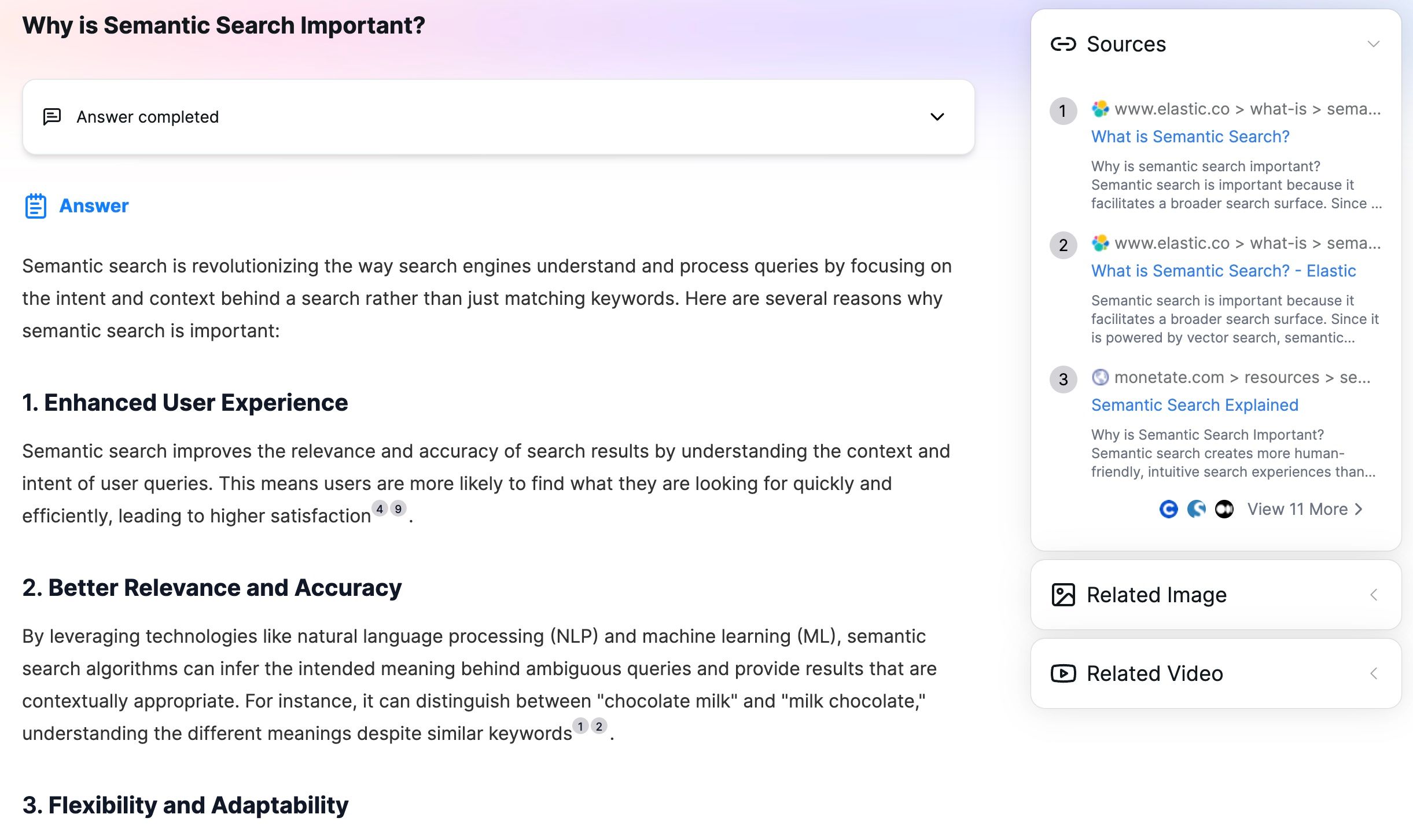Unlocking the Power of Semantic Search with Felo
Semantic search represents a significant leap forward in the world of search engine technology. By understanding the intent and context behind user queries, it promises to deliver more accurate, relevant, and personalized search results. As we look to the future, semantic search will undoubtedly play a crucial role in shaping how we find and interact with information online. With innovative solutions like Felo leading the charge, the future of search looks brighter and more efficient than ever. Whether you're a casual user or a digital marketer, understanding and leveraging the power of semantic search will be key to staying ahead in the ever-changing digital landscape.
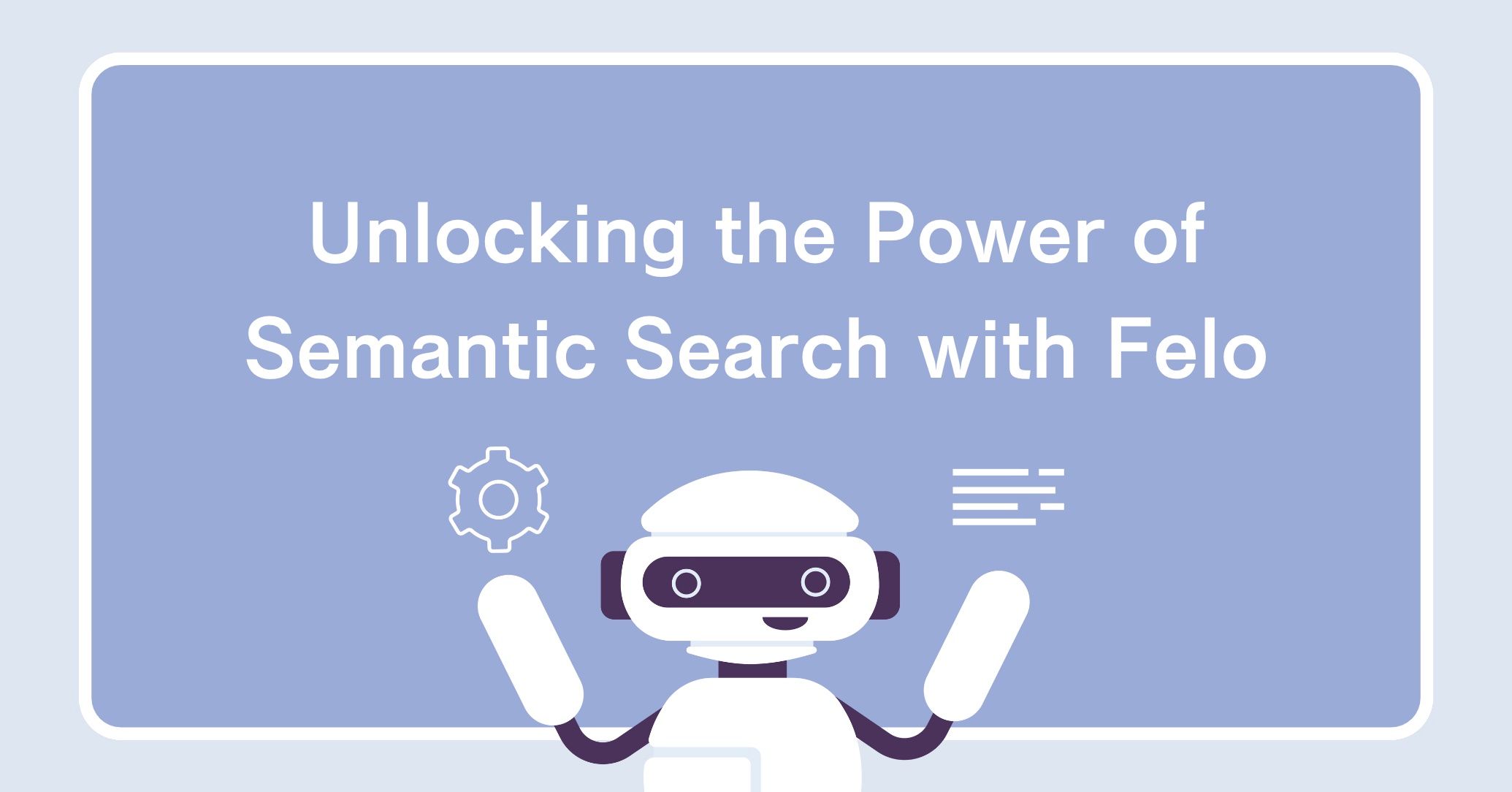 In the ever-evolving landscape of search engine technology, one term has been making waves recently: semantic search. As we move beyond the era of keyword-based queries, semantic search promises to revolutionize how we find information online. But what exactly is semantic search, and why is it considered the next big thing? Let's dive in..
In the ever-evolving landscape of search engine technology, one term has been making waves recently: semantic search. As we move beyond the era of keyword-based queries, semantic search promises to revolutionize how we find information online. But what exactly is semantic search, and why is it considered the next big thing? Let's dive in..
What is Semantic Search?
Semantic search refers to the ability of search engines to understand the intent and contextual meaning behind a user's query, rather than just matching keywords. This approach aims to improve search accuracy by considering the searcher's intent, the context of the search, and the relationships between words.
For example, if you search for "best places to visit in New York," a traditional keyword-based search engine might look for pages that contain the exact phrase "best places to visit in New York." In contrast, a semantic search engine will understand that you are looking for travel recommendations and might provide results that include top tourist attractions, hidden gems, and travel guides related to New York City.
How Does Semantic Search Work?
Semantic search relies on several advanced technologies and methodologies, including:
1. Natural Language Processing (NLP): NLP allows search engines to understand and process human language in a way that is both meaningful and contextually accurate. This technology helps search engines interpret the nuances of a user's query.
2. Machine Learning: By analyzing vast amounts of data, machine learning algorithms can identify patterns and relationships between different pieces of information. This enables search engines to make more informed predictions about what a user is looking for.
3. Entity Recognition: This involves identifying and categorizing key entities (such as people, places, and things) mentioned in a query. By recognizing these entities, search engines can better understand the context and provide more relevant results.
4. Knowledge Graphs: Knowledge graphs are databases that store information about entities and their relationships. They help search engines connect the dots between different pieces of information, leading to more accurate and comprehensive search results.
Why is Semantic Search Important?
The shift towards semantic search is driven by several key factors:
1. Improved User Experience: By understanding the intent behind a user's query, semantic search can provide more relevant and useful results. This leads to a better user experience, as searchers are more likely to find what they are looking for quickly and easily.
2. Voice Search: With the rise of voice-activated assistants like Siri, Alexa, and Google Assistant, users are increasingly using natural language to perform searches. Semantic search is essential for accurately interpreting and responding to these voice queries.
3. Complex Queries: As users become more sophisticated in their search behavior, they are asking more complex and nuanced questions. Semantic search can handle these complex queries more effectively than traditional keyword-based search.
4. Content Discovery: By understanding the relationships between different pieces of content, semantic search can help users discover new and relevant information that they might not have found otherwise.
Introducing Felo: The Future of Semantic Search
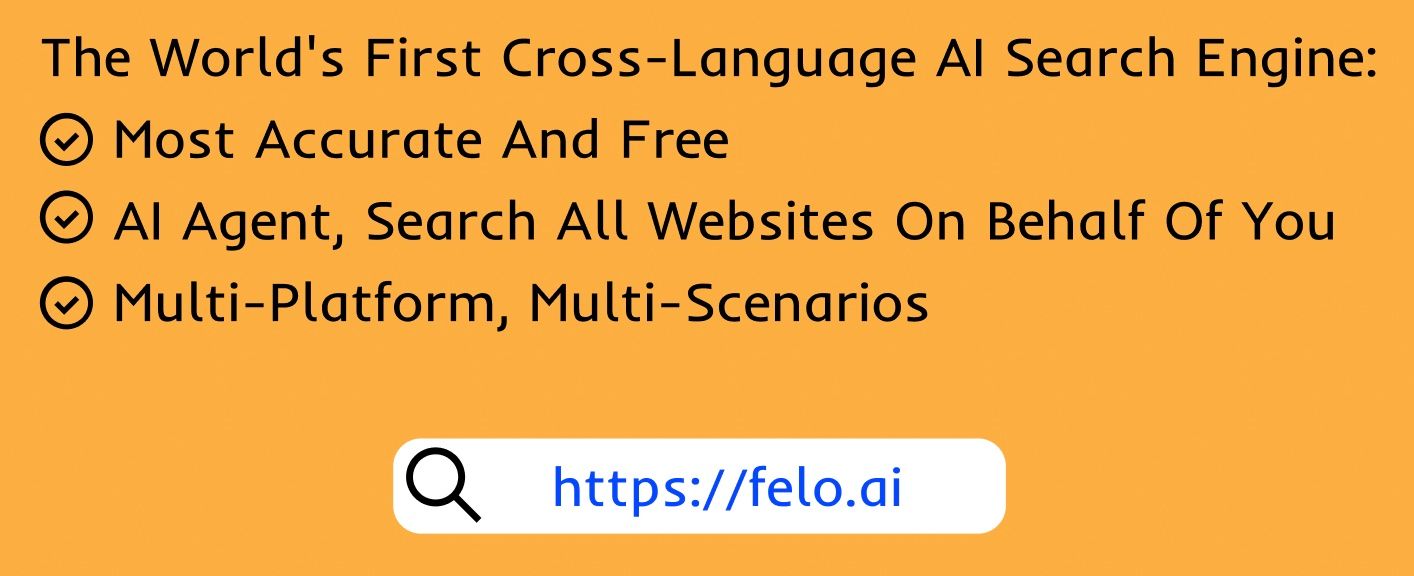
One standout example of semantic search technology in action is **Felo**, a cutting-edge AI search engine designed to provide a seamless, multilingual information retrieval experience. Felo leverages its proprietary large model to deliver fast and accurate global information searches, regardless of the language you speak.
Key Features of Felo:
- Cross-Language Search: Easily find authoritative information from around the world using your native language.
- Free and Accurate Q&A Engine: Receive precise answers with traceable sources.
- AI Search Agent: Gather information not only from the internet but also from platforms like Reddit and Twitter.
- Multi-Platform Support: Access Felo on mobile, web, or even by tweeting @felo.
- Deeply Customized Content: Features like content summarization and side-by-side web page translation (just paste a link and type "summarize" for a concise summary).
Real-World Applications of Felo
Whether you're a student, a professional, or an information enthusiast, Felo can make your searches more efficient and accurate. Imagine you're a researcher looking for the latest studies on climate change from various countries. With Felo, you can input your query in your native language and receive comprehensive, authoritative results from sources around the globe. Or perhaps you're a marketer needing insights from social media trends; Felo's AI search agent can pull data from platforms like Twitter and Reddit, providing you with a wealth of relevant information.
The Future of Search Engine Technology
As semantic search continues to evolve, we can expect several exciting developments in the world of search engine technology:
1. Personalization: Search engines will become even better at tailoring results to individual users based on their preferences, search history, and behavior.
2. Contextual Awareness: Future search engines will have a deeper understanding of context, allowing them to provide more accurate and relevant results in real-time.
3. Integration with Other Technologies: Semantic search will increasingly integrate with other emerging technologies, such as augmented reality (AR) and the Internet of Things (IoT), to provide more immersive and interactive search experiences.
4. Enhanced AI Capabilities: As artificial intelligence continues to advance, search engines will become even more adept at understanding and interpreting human language, leading to further improvements in search accuracy and relevance.
Conclusion
Semantic search represents a significant leap forward in the world of search engine technology. By understanding the intent and context behind user queries, it promises to deliver more accurate, relevant, and personalized search results. As we look to the future, semantic search will undoubtedly play a crucial role in shaping how we find and interact with information online. With innovative solutions like Felo leading the charge, the future of search looks brighter and more efficient than ever. Whether you're a casual user or a digital marketer, understanding and leveraging the power of semantic search will be key to staying ahead in the ever-changing digital landscape.
